
If you want deep dives into Peter Parker’s psychology, J.M. DeMatteis (JMD) and Paul Jenkins are your go-to guys for that. Thanks to mainstream masterpieces like Kraven’s Last Hunt, any new reader will learn of JMD from more-or-less the first moment they get into comics. Paul Jenkins is well known too, but maybe not immediately with new Spider-Man fans the way the former is.

Since it’s Christmas, we will be looking at one of my favorite deep dives into Peter Parker’s psyche by Jenkins, which also happens to be a Christmas story. We will be looking at Vol. 2 Issue #27 of The Spectacular Spider-Man titled “The Final Curtain” – not to be confused with Season 2 Episode 26 of The Spectacular Spider-Man titled “Final Curtain”. Yes, that happened twice.
Premise
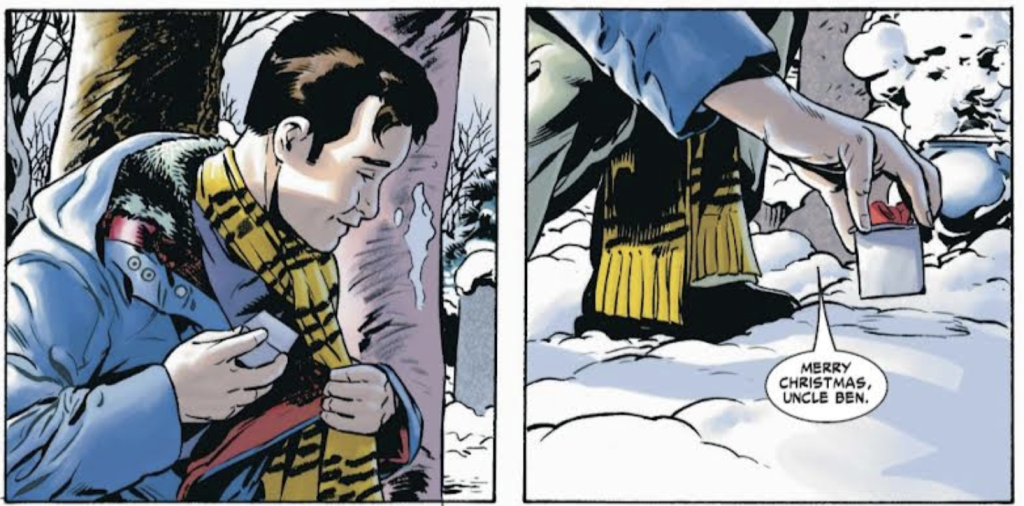
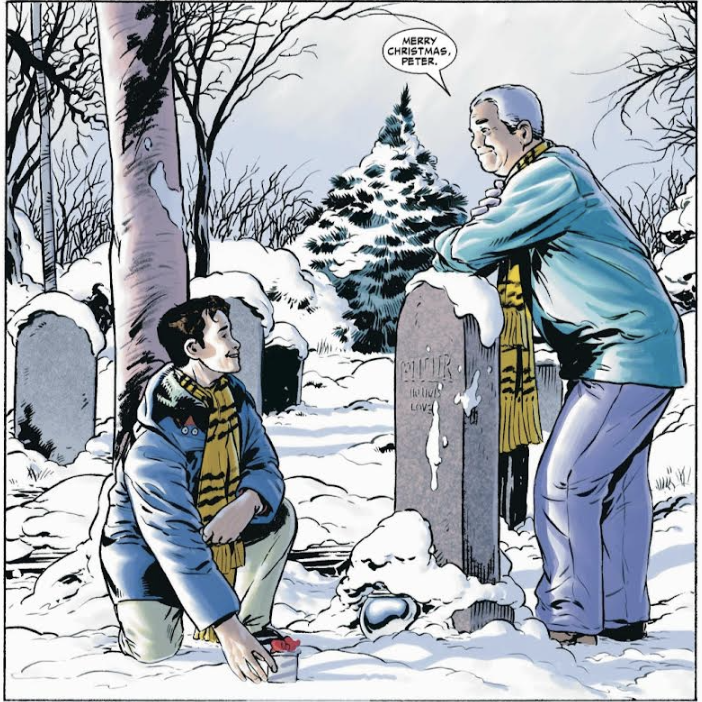
The Final Curtain was published in 2005 and takes place during the JMS run, not too long after Peter and MJ reunited and May found out that he is Spider-Man. To summarize twenty-two pages in just a few paragraphs, the entire story is about Peter visiting Uncle Ben’s grave sometime in December close to Christmas. He stops by to drop off a gift for Uncle Ben, but begins imagining talking to Uncle Ben as if he were there. In reality, the “conversation” is just Peter talking to himself, but attributing the wise and insightful “voice” in his head to Uncle Ben.
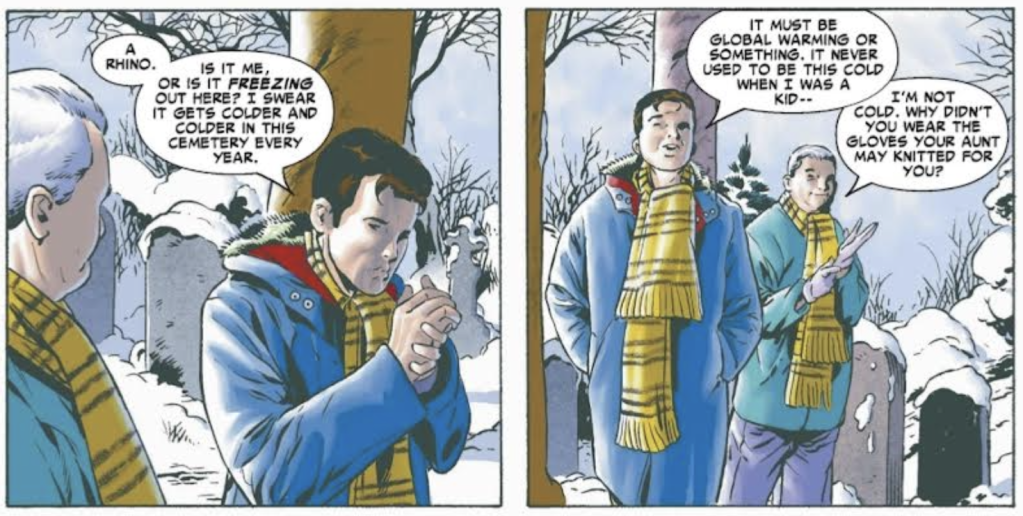
He tells “Uncle Ben” what is troubling him, and about a nightmare he keeps having. “They” reminisce over some old memories, including some from Peter’s childhood with his parents. Uncle Ben offers Peter some advice, and Peter goes home where he finally dreams a good dream.
Jenkins could have set this story anytime of the year, and the basic story beats would have worked just fine. Aside from the time of year, there are several other reasons why this counts as a holiday story:

- Christmas is often a time when people remember their family and friends – those alive, and also those who are gone. Here, Peter reminisces over Ben, Gwen, his parents and all the other people he lost over the years.
- Christmas is also close to New Year’s, when people often reflect on past memories, feelings of guilt or regret, and on any progress they made. In other words, it’s also a time about trying to move on and accepting change – at one Peter even says he feels overwhelmed with all the recent change in his life. It’s therefore a New Year’s story as much as it is a Christmas story.
- Much like how Christmas is a tradition that goes back a long time, Peter visiting Uncle Ben’s grave is a tradition that goes decades back in comics. Since tradition is one of the things Christmas is about, Peter visiting Uncle Ben’s grave during this time makes perfect sense.
In short, The Final Curtain not only has a lot wisdom to teach us about life and about our hero; it also did right where the live-action movies dropped the ball a bit (or a lot). At the end of the next three sections, we will also briefly compare what Jenkins does here with what the live-action movies did and where they could have improved.
“YOU PAIR OF TWITS!”
As mentioned, Peter visiting Ben’s grave to “talk” to him and leave gifts is a tradition that goes decades back in Spider-Man comics.
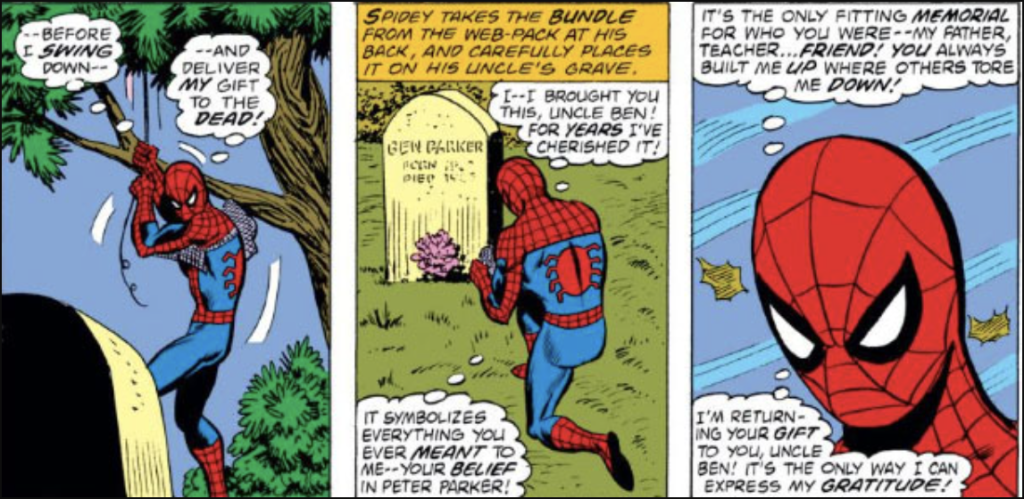

In fact, it’s not even the first time it happened in Jenkins’ run – the first time it happened being in Peter Parker: Spider-Man #20, which is also the issue that starts off Jenkins’ run on Spider-Man. Funny enough, The Final Curtain is also Jenkins’ last issue on Spider-Man. In other words, him ending his run with yet another story of Peter talking to Uncle Ben’s grave is, in essence, his six-year run on the character coming full circle.
Despite us seeing Peter visit Uncle Ben’s grave already in the past, to my knowledge this is the only time we “see” Uncle Ben talking back to Peter as if he were actually there. The only other instance was in Amazing Spider-Man #500, which came out not long before this did. JMS had Peter talk to Uncle Ben there too, but in the case of ASM #500 it was the actual Uncle Ben – thanks to a bit of help from Doctor Strange (too long to explain). If Jenkins chose to exclude Uncle Ben and just have Peter talk to his grave again like in PP:SM #20, I think the story would have played out the same. By having Uncle Ben take the form of Peter’s inner voice though, Jenkins deep dives into what exactly Ben means to Peter.
Arguably, what Uncle Ben represents in this story is Peter’s conscience and inner coach.
In psychology, there are two concepts called the “inner coach” and “inner critic”. To sum them up in just a few sentences, the basic idea is that every person has two “voices” in their heads: one that sounds like a coach trying to help you out, and the other that sounds like a critic putting you down. The “inner critic” would be the voice in your head that criticizes you and puts you down with what’s called “negative self-talk”. By contrast, the “inner coach” would be the voice in your head that tries to uplift you with what’s called “positive self-talk” and with a non-judgmental attitude.[1] Obviously these are not literal voices in your head (for most people anyway), and don’t literally talk to you as if they’re some person living in your brain; nonetheless they’re called that because they can have the same impact on you as a coach or critic in the real world. In some cases, if someone in the real world acted like a coach or critic to you for a huge portion of your life (e.g. a parent), you might even imagine your inner coach or critic to kind of look and sound like that person without realizing it.[2]
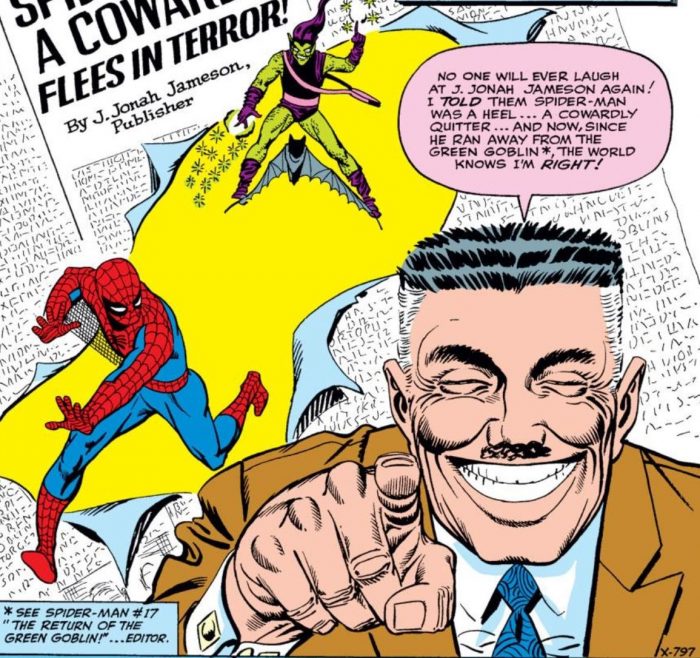
Spider-Man stories were never entirely absent of these concepts. Just like Peter visiting Ben’s grave, Peter dealing with inner conflict or having a supporting character that embodies parts of his inner conflict goes back to Lee/Ditko. For example, some Spider-Man fans consider Jameson a metaphor for Spider-Man’s “inner critic” because Jameson sees the worst in Spider-Man the same way that an “inner critic” would.[3] (The Insomniac games even took this idea to the next level by giving Jameson a radio show that Peter listens to while he is swinging – turning Jameson into a literal voice in Peter’s ear at all times). I think that that is true but by that line of reasoning, Uncle Ben is Peter’s “inner coach”, especially in this story. More specifically, it is what Peter imagines his “inner coach” to look and sound like. It is for that reason why Peter’s “inner coach” in this story takes the form of Uncle Ben.
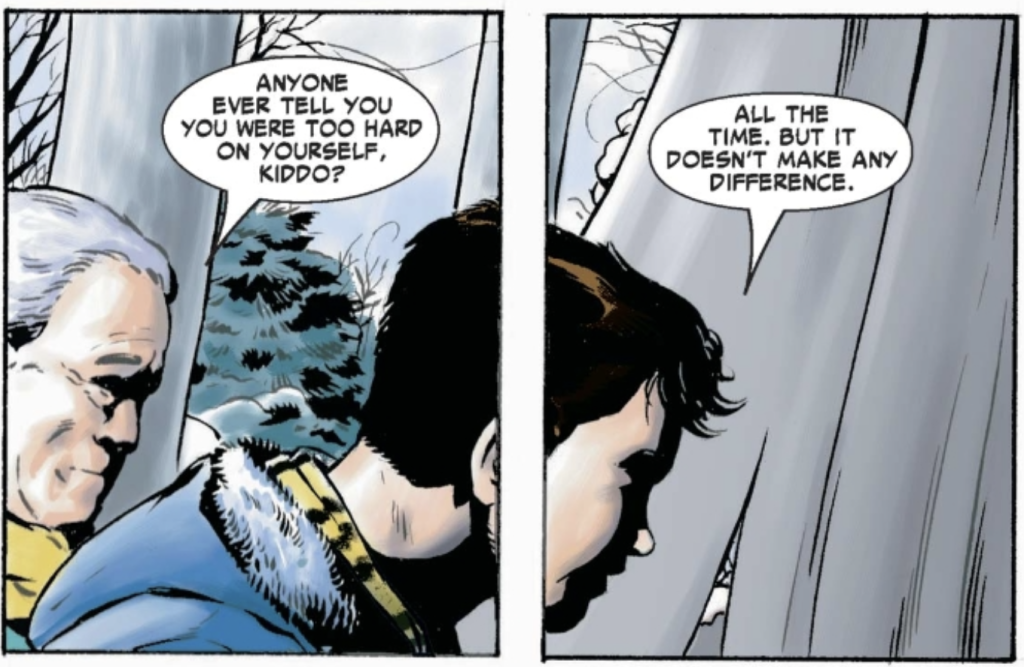
In hindsight, Uncle Ben taking the form of Peter’s “inner coach” in a story like this is to be expected:
- For one, inner coaches or critics (as we just explained) are more likely to resemble a parent. Ben is the father that raised Peter, so based on that alone it makes sense.
- It also makes sense when considering that “with great power comes great responsibility” is Peter’s core philosophy, the one that he tries to live by the most and that he got from Uncle Ben (albeit retroactively in comics history, but still).
- The fact that Peter visits Ben’s grave so often to reflect and to “ask” for advice is further proof of how much Peter still looks to his uncle for guidance. Even in Peter Parker: Spider-Man #20, the reason Peter visited Ben there was figure out how to rediscover the joy in his life after losing MJ in a plane crash (again, too long to explain).
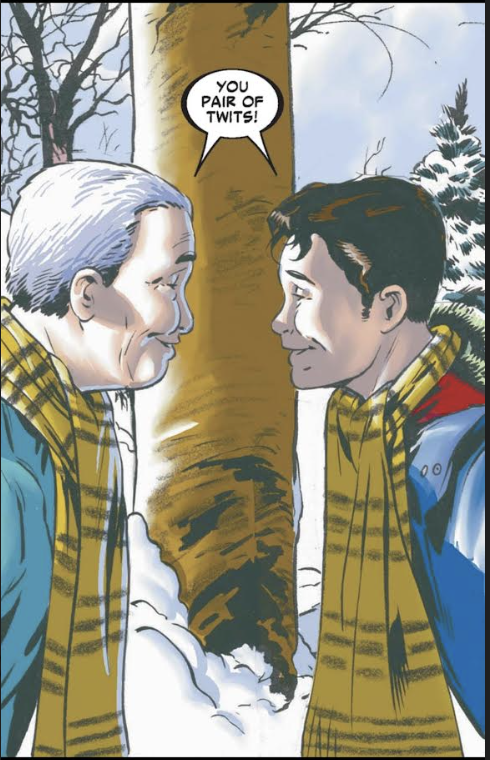
In other words, Peter’s “inner coach” resembling Uncle Ben is a reminder of the kind of father that Ben was, and that he continues to have a positive influence on Peter’s life and thought processes everyday. But Uncle Ben’s impact on Peter doesn’t stop there. The flashbacks we see when Peter is reminiscing about his childhood, and also the banter between Peter and Ben here, give us a better idea of what Ben’s personality was like in day-to-day life. Based on what Jenkins shows us, Ben’s personality had quite a bit in common with Spider-Man’s.
Jenkins writes Uncle Ben here as someone with a great sense of humor, who can keep up with Peter’s banter and has a misfit, lively personality to him. We see panels where Peter and Ben would pull pranks on May by building snowmen in places they “shouldn’t” have throughout their neighborhood, including a hilarious moment where May finds snowmen in their car. Peter also briefly mentions a time when Uncle Ben played one on him by unwrapping Peter’s Christmas toys to play with them before he could. Any way we look at it, the story implies that a lot of Peter’s personality as Spider-Man comes from Uncle Ben too. Peter always has a sense of liveliness and mischief while in costume; this story is Jenkins arguably trying to explain where at least some of that influence came from.
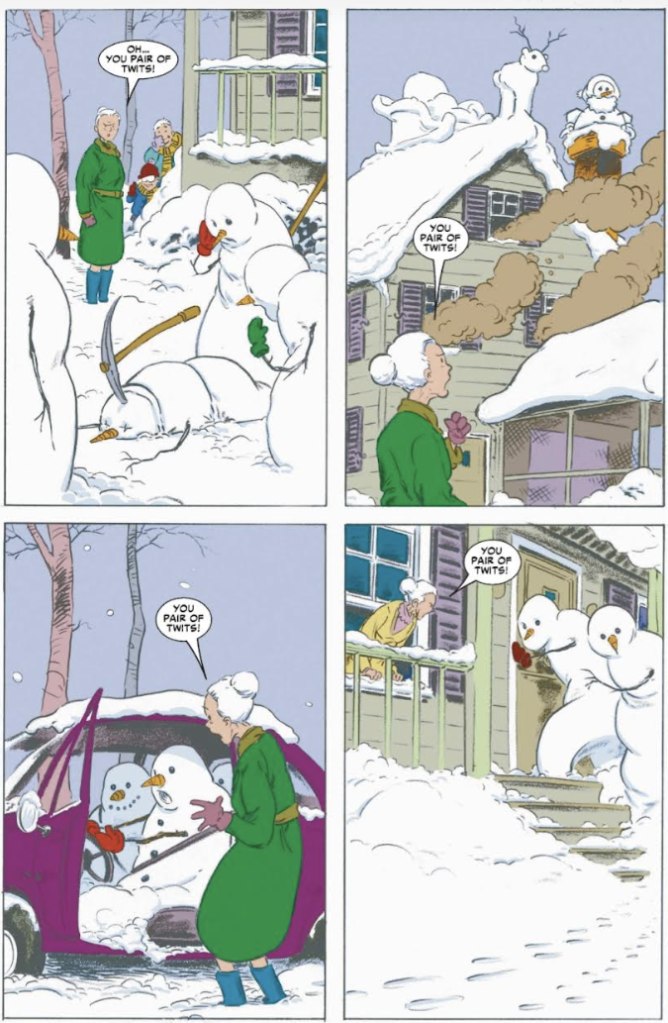
At the same time, the humor we see from Uncle Ben in the flashbacks is not completely interchangeable with the humor we associate with Spider-Man. There is an innocence and a lack of snark to be found in both Ben’s humor and the humor of seven-year-old Peter. Since we know Peter’s history, we know that his innocence is gone by the time we first see him as a teenager in Amazing Fantasy #15, and that by the time he becomes Spider-Man, he is all snark. Basically, what Jenkins is also communicating via the flashbacks is the loss of innocence that comes with growing up.
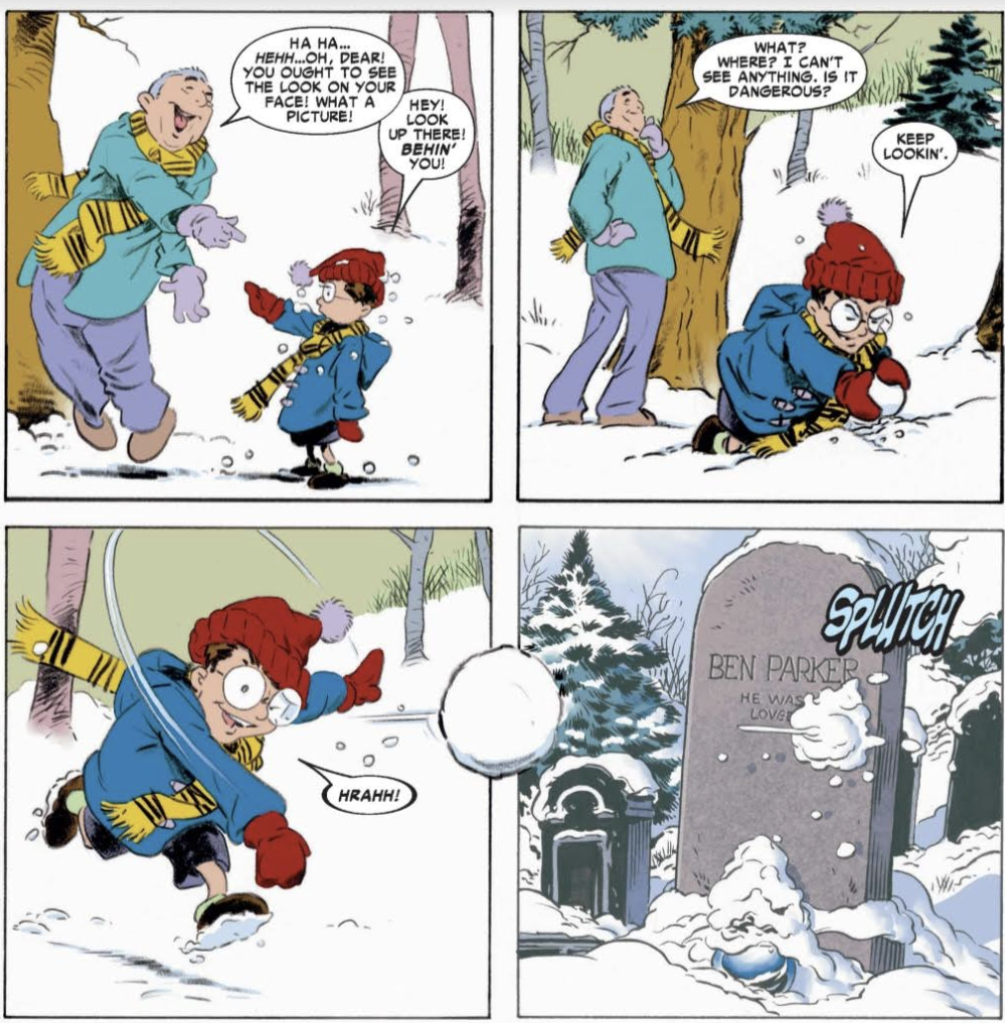
The innocence we see in seven-year-old Peter makes the flashbacks a bit tragic to read in a way that I’m sure everyone who has “grown up” and left their childhood behind is familiar with. It’s also tragic for the simple fact that Ben is now, well, dead. And yet, it’s bittersweet and magical the way all Christmas memories from our childhoods are. We all have those “perfect” Christmas memories from when we were kids that we look back fondly on, often when someone close to us was still alive but is now gone. It’s yet another way that Jenkins manages to make this feel like a Christmas story, and why the story is a great tribute to Uncle Ben and what he means to Peter.
Where the movies went wrong
Enough has been said already about the MCU’s omission of Uncle Ben. I’m not going to get into the nitty-gritty details about that here, since the whole internet is familiar with that critique by now.

I’ll just clarify that my problem was never that he didn’t come up per se, but that he didn’t come up in places he would naturally come up. Some of the scenes where he would have naturally came up would have taken no effort, like showing him in a picture or simply including a gravestone next to Aunt May’s at the end of No Way Home. The fact that it was so insanely easy to allude to him in certain places (but still chose not to) makes the whole omission feel artificial instead of organic.
However, the MCU also does a disservice to Uncle Ben by reducing him to just the slogan “with great power comes great responsibility”, and by essentially arguing that him and May are interchangeable. There is a lot more to Uncle Ben – or any believable parental figure for that matter, real or fictional – than just a Wikipedia page. I believe this is one of the stories that shows just how much there can be to Ben Parker and to the history that he shares with his nephew.
THE EIGHT-LEGGED ANT
As Peter continues to reminisce over his childhood, he remembers a time from first grade when his parents were still alive and he was in a school play. We then get another flashback to Peter’s seven-year-old self. As we deep dive into it, we will learn a lot about (1) what Spider-Man really is and (2) about how Peter sees Spider-Man.
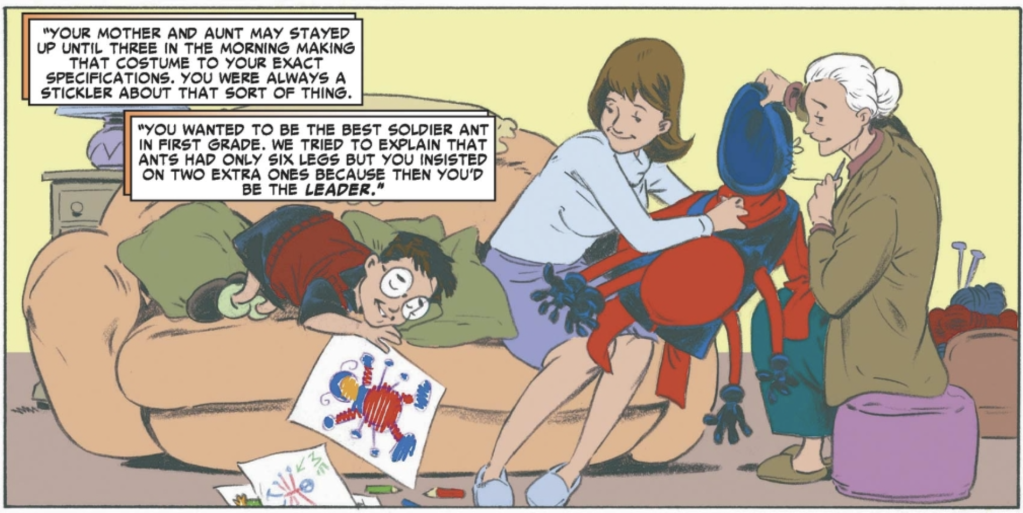
We learn that Peter was once in a school play called “Soldier Ants and Ladybugs”. He was one of the ants in the play, and was apparently looking forward to being in it for an entire week leading up to the play. They also apparently let the students come up with their own costumes for the play, since we see a seven-year-old Peter drawing an ant costume and getting Aunt May to make it. As I’m sure it’s obvious by the panel, Peter’s costume resembles more of a spider than an ant, since it has eight legs instead of six. It’s also red and blue, and would clearly come to eventually resemble his Spider-Man suit. In a way, this is the first “Spider-Man” costume Peter ever wore.
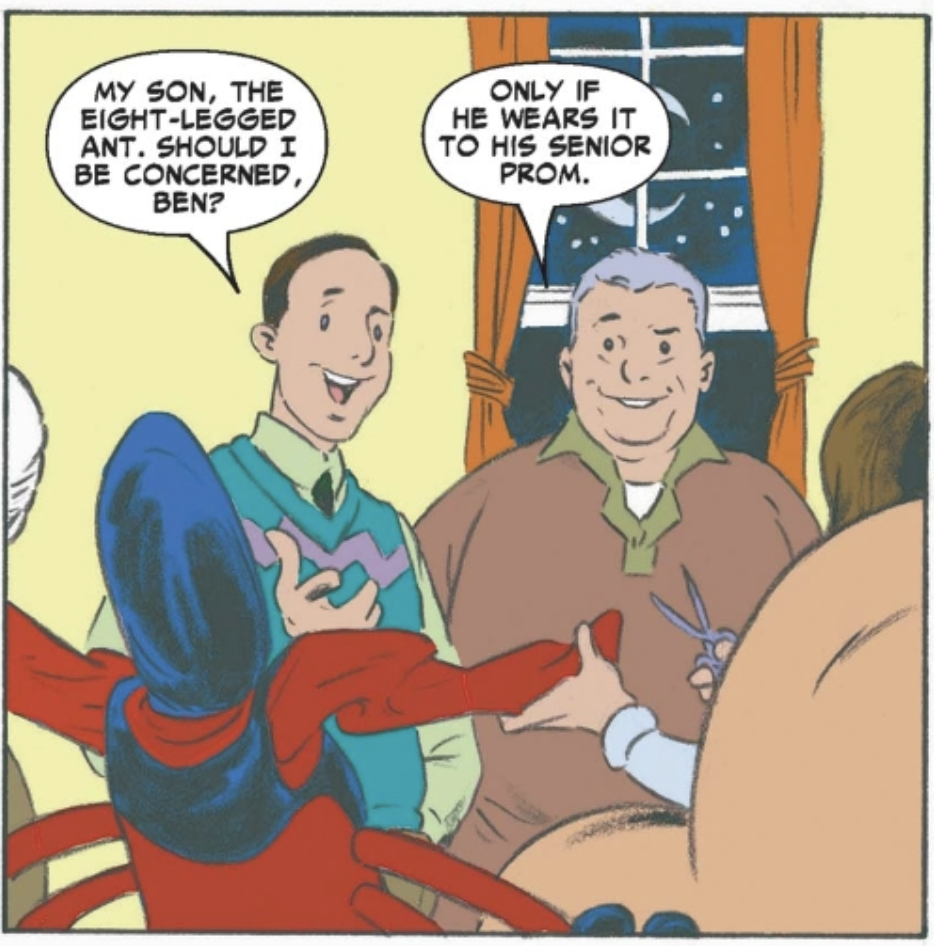
There are two meta-jokes in here that crack me up. The first is how Peter apparently insisted his costume should have eight legs instead of six because he wanted to be “more than just an ant”. As longtime Spider-Man fans know, Spidey will often jokingly correct people that spiders aren’t insects whenever someone calls him an insect in the comics. To see Peter himself sort-of fall for that misconception is hilarious. The second is Ben jokingly telling Peter’s dad he should only worry if Peter wears it to his senior prom – the irony being that Peter wore his red-and-blue Spider-Man costume under his clothes throughout his entire senior year of high school, and only didn’t wear it to prom because the Lee/Ditko run didn’t show one (prom was not a major high school tradition until after the 1960’s). Still, Peter did wear it under his clothes at his graduation and at several college dances, and continues to wear it under his clothes as a grown man. (Honestly, considering the sliding timescale nature of 616 and the fact we know there are more stories that happened in high school thanks to stuff like Untold Tales, Comics Peter probably wore his Spider-Man suit to prom too.)
The eight-legged ant costume itself actually symbolizes several things:
- It’s a metaphor for Peter being an outcast and for his awkwardness as a kid – eight-legged ants to our knowledge don’t exist, and such an ant would be a mutation and aberration from the “norm”.
- It’s a foreshadow of who and what he would eventually become.
- Peter says he wanted to be “more than just an ant” and seems to view being “just an ant” as a bad thing.
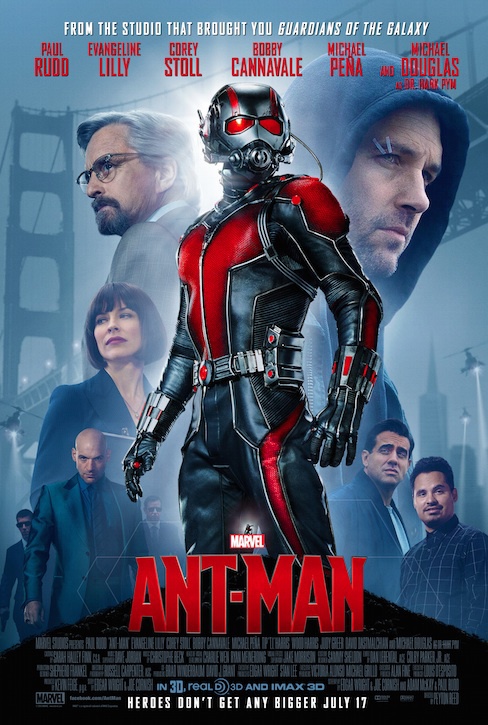
Regarding that last point, not wanting to be associated with an ant is arguably more common than we might think. I remember when Ant-Man came out in 2015, some thought the name “Ant-Man” wasn’t cool enough – so much that the movie itself threw in a joke over whether or not “it’s too late to change the name”. Others were confused why “Spider-Man” was seen as a cool name but “Ant-Man” wasn’t. Personally, I thought the double standard there was obvious: ants are known for their tiny size and insignificance, while spiders are not (helps that many species of spiders are quite big). If you say the word “spider” to a random person, first thing that might pop in their mind besides Spider-Man would probably be a spider’s webs, or the way it crawls and bites, or some of a spider’s creepy physical characteristics like their high number of legs and eyes. If you say “ant” to a random person, first thing they’ll probably think about is the tiny size of the ant. People may hate and fear spiders, but they’ll literally look down on ants. That is if they bother to look down at them in the first place. Usually ants are just ignored and not given any thought before they are stepped on and squashed like a bug (hence the expression). Do you remember the last time you accidentally stepped on an ant while you were walking? Me neither.
In other words, ants are a lot like Peter before he got his powers: tiny, powerless, ignored and stepped on by the bigger guys and the bullies. Essentially, Peter wanting to be “more than just an ant” is a sign that Peter was always looking for an escape from his life and from what he was seen as by society. That escape is, of course, what Spider-Man ended up being.
At the same time, it’s important to note that Peter didn’t clue in that his costume looked more like a spider. Nor was it the intent. The messiness of the costume shows that Peter wanted to be “more than just an ant” – AKA more than what he was as at the time – but he still had no idea what he actually wanted to be. It’s the opposite of the Peter from Amazing Fantasy #15, who had a very specific idea of the kind of person he wanted to be after he made his costume and started doing public appearances.
In the next panels we finally see Peter on stage in full costume, with his parents and aunt and uncle watching from the house. Peter apparently had only one line in the play, which he apparently practiced for the whole week and couldn’t wait to deliver it… only for him to experience stage fright and go silent.

Far cry from the Spider-Man who would come to quip nonstop off the top of his head, isn’t it? Arguably nothing demonstrates better how much Spider-Man is about growth than if we compare Peter in the play here with what we know he’ll be like when he is older.
Jenkins in these flashbacks explicitly draws attention to an idea that has been subtext in comics since AF#15. That idea is that Peter to a certain extent views Spider-Man as a performance he gives to the world watching. More specifically, he views it as a performance of his best self, or of what he wishes and imagines his “best self” to be.
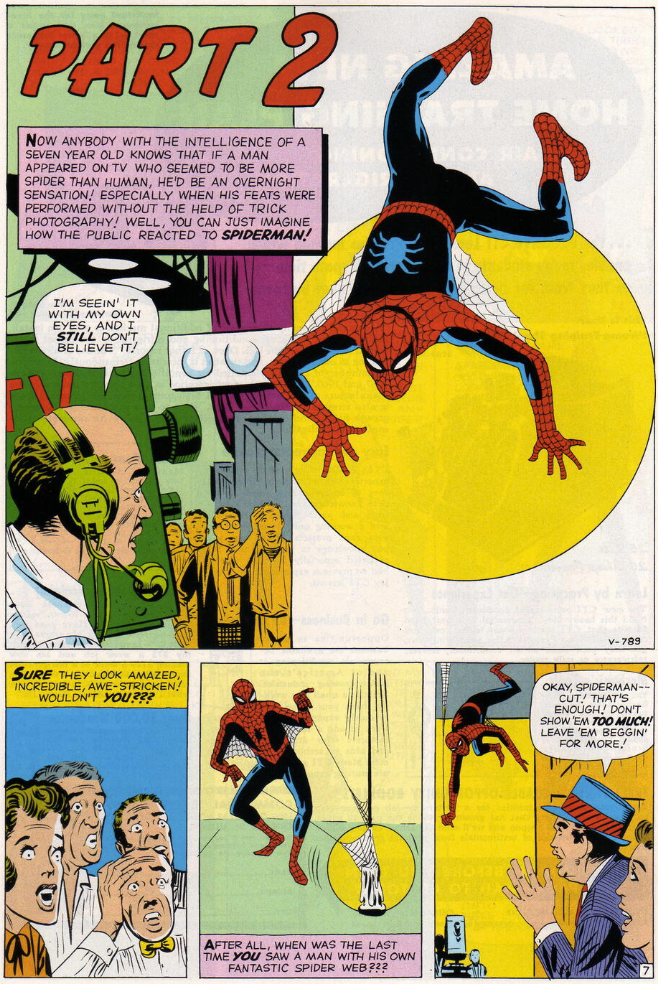
Keeping this in mind, certain things about the “Spider-Man persona” start to make sense. For example, it makes sense why Peter picked red and blue as the colors for his costume – both for his “ant” costume as a kid, but also for his superhero suit. Red and blue are primary colors, which stick out more than other colors. The colors of the costume thus reflect Peter’s deep desire to be seen and acknowledged by the world, and to not be “invisible”. The line of dialogue in the play that he had as a kid, and the quips in the case of his older self, are likewise part of the persona and image he wishes to project. It also explains why one of Peter’s first instincts when he first got his powers in AF#15 was to be a television performer.
It’s clear that what Peter envisions to be his “best self” and the image he wishes to project and to captivate the world with has certain specific traits. They are the traits of a person that is confident, entertaining, and at least somewhat talkative – all of those being traits that (at the time) he struggled to emulate and embody at school and in daily life.

In addition, it’s one of the things that he has in common with MJ, who aspires to be an actress and who views acting as an escape from her own problems and status in the world. Through this flashback, Jenkins is also building on an idea that was introduced in Parallel Lives, which is that Peter and MJ understand each other partly because of having similar life experiences that only differ when it comes to specific details. Just like Peter, MJ too has an idea of what her “best self” is and of the sort of image she wants to project to the world that helps her cover up her own problems and insecurities.
Does that mean that Peter is “acting” as Spider-Man, though? Not necessarily. Some fans have argued that Spider-Man is a literal performance. I don’t think that’s the case. If that were true, we would not see signs of the “Spider-Man persona” elsewhere – like when Peter is bantering with MJ or Aunt May, or the way he banters with Uncle Ben in this, or even the way he eventually learns to talk back to Flash and to flirt with girls. I think a better explanation is that Peter’s “performance” as Spider-Man is closer to the way we all act our best on a first date or while doing a presentation. Typically when we go on a first date or do a presentation, we put forward our most confident and energetic selves, even if inside we feel a little down or have tons of other things on our minds. But it does not mean that the person we present to others in those moments isn’t “the real us”, or that we are literally acting in the way a movie star acts for a role. The person we are in those moments is just “us” turned up to 10 or 11. The same is arguably true of Peter when he is Spider-Man.
All of this begs the question, though, why did Peter experience stage fright and “fail” at delivering his only line in the play?

As Uncle Ben tells him, he felt “small and alone and afraid in front of the world.” The one difference between Spidey on stage in AF#15 and Peter in the play as a kid – aside from the obvious stuff that one is a grown man with powers and the other is just a child – was the anonymity factor. In other words, Peter lacked the anonymity in the play that he would later have as Spider-Man, and therefore felt like all his insecurities were on display. By showing seven-year-old Peter experiencing stage fright, Jenkins reinforces something else that fans have known for a long time: The mask is what gives Peter the confidence and helps him quip lines nonstop with ease.
Where the movies went wrong

A question that a critic of Raimi’s Spider-Man often gets asked is whether the lack of quips in those movies is that big a deal. After all, there is no denying just how well done those first two Raimi films are, and how they nailed the heart of the character. So what if Spider-Man in them didn’t talk much or make a lot of quips? Isn’t that just fans being nitpicky when we look at everything else the Raimi films got right? Don’t other Marvel movies have problems precisely because they insert too many forced jokes?
To be fair, Spider-Man is a character that appeals to an insane number of people (probably billions at this point). A character that universal is undoubtedly loved for many different reasons, and I’m sure many fans (both hardcore and casual) do view his jokes as just “add-on’s”.

My counterargument though is that the best Spider-Man writers (including Jenkins) understand that quips are part of the dichotomy between Peter Parker and Spider-Man. As we just saw in the above section, we can learn a lot about Peter’s psychology – including his deepest wants, fears and sense of identity – just by looking at how different he acts when behind a mask. That includes the quips. To remove the quips is thus to remove psychological complexity from the character and make him more two-dimensional.
It’s not inherently “wrong” to do a more silent or unfunny Spider-Man if there’s a purpose to it, or if it adds complexity to the character. For instance, JMD’s Spider-Man doesn’t quip much in Kraven’s Last Hunt. But Peter is so introspective and psychologically complex in that story that it more than makes up for it.
Unfortunately, the same can’t be said for the quip-lacking versions of Peter in the movies. In Raimi’s case, it felt like they just wanted to ape the stoicism of Donner’s Superman. In the MCU’s case, it felt like they didn’t want Peter to talk back to Mr. Stark or to come off intentionally funny to the audience.
“IT WAS ALWAYS FOR YOUR PARENTS.”
Part of what embarrassed Peter was not just that he “failed” in front of what felt like the whole world that day, but that he failed in front of his folks. As he continues to talk to Uncle Ben, Peter comes to a realization: Everything he does as Spider-Man is partly out of a desire to “prove” himself to his parents.
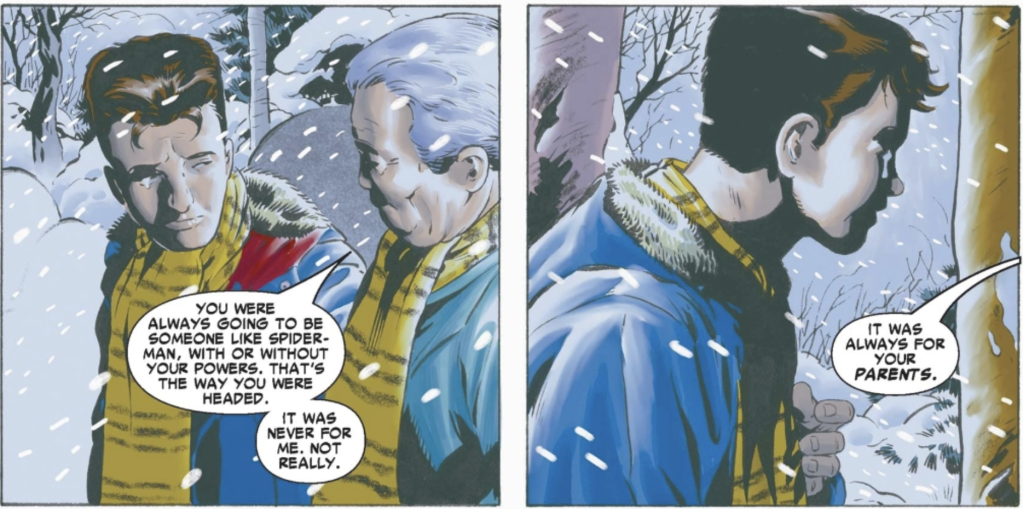
He feels that he has “failed” them, wishes he had his powers as a kid to “save” them, and wonders if they would have even been proud of what he does. In fact, Peter’s conscience is so convinced of this that Uncle Ben goes as far as tell him that Peter becoming Spider-Man “was never for [Uncle Ben]”, and that Peter actually puts his life on the risk everyday “for [his] mom and dad.”
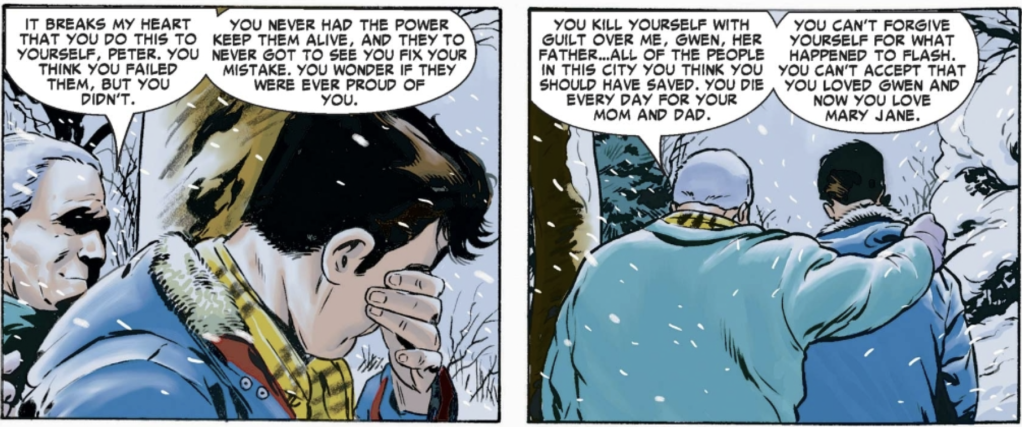
What’s going on here? Isn’t Uncle Ben the reason Peter does what he does? Doesn’t this just downplay Ben’s importance as a father and fly in the face of AF#15?
If you’re confused by this, try a thought experiment: Think back to a time in your life when you made a major life decision. Chances are there were multiple reasons you made the decision instead of just one. For instance, maybe you were working a desk job you hated, so you decided to go to medical school and finally pursue your dream of becoming a doctor. In that hypothetical situation, the main reason you enrolled in medical school was that you thought being a doctor would be a more fulfilling job than your desk job at the time. But it likely wasn’t your only reason for enrolling:
- Maybe it paid more than the desk job you were doing before, so it gave you that extra motivation to go back to school.
- Maybe part of you missed being in school, thus pursuing your dream was also your way of being on campus again.
- Maybe you also wished you could move to a more expensive area that you always loved but couldn’t afford living in with a desk job salary, and becoming a doctor would help with that.
- Maybe you also thought about how much the career change would help your kid, or your chances to plan for a family if you don’t have one.
On some days, maybe some of those motivations were more in your forefront than on most days. Maybe on some days, all you could think about was how significantly higher that doctor salary was going to be than working a desk job, and that was what got you through the day. None of that would change the fact that your main reason for getting through med school was to pursue your dream of becoming a doctor.
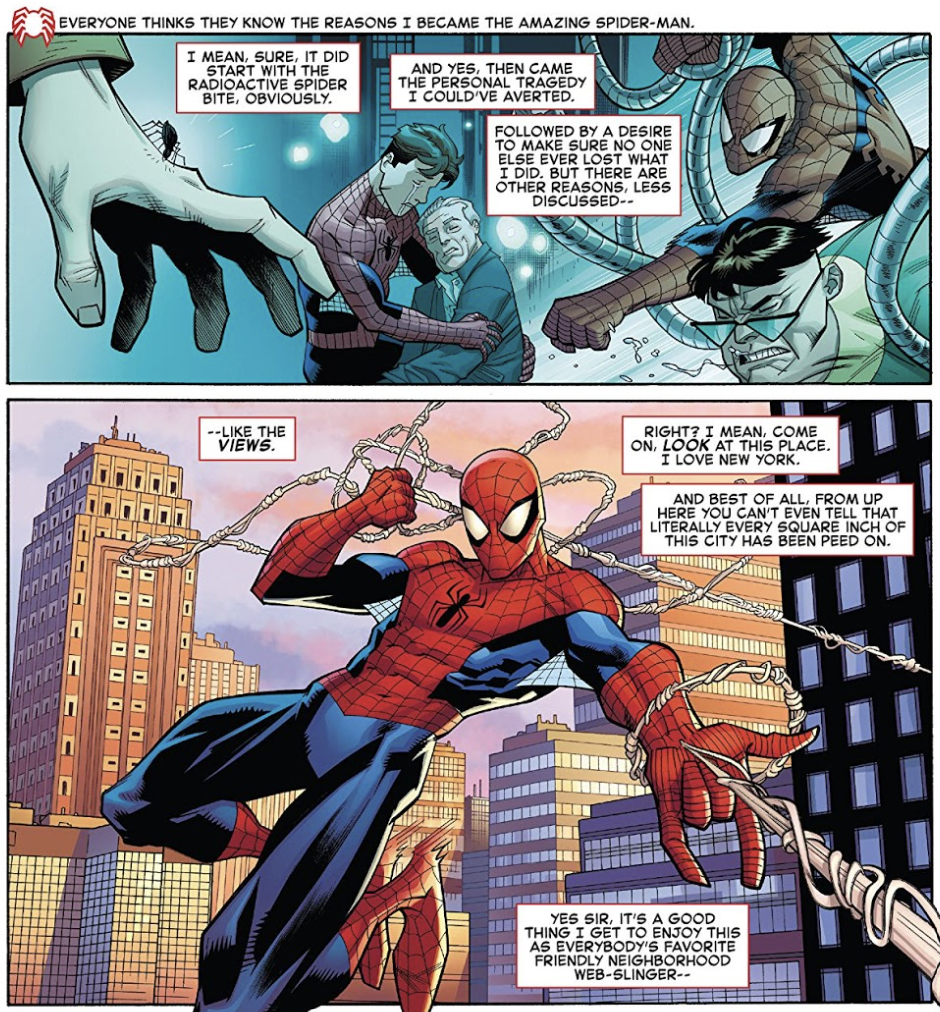
To those who insist that fixating on Peter’s parents will always take away from May and Ben no matter what (and there are some who think that), I propose to you that Peter functions the same way as the person in my analogy. Like any real person and three-dimensional character, there is a “primary” reason he does what he does and several “secondary” reasons that inform his actions at the same time. Yes, the main reason he does what he does is because of Uncle Ben and the lessons he learned in AF#15. But that was arguably never the only reason. Arguably another reason Peter does what he does is due to guilt. Another another reason is that he does it for the thrills. Another (to paraphrase Spencer) is that he loves swinging across city skyscrapers and “the views”. And another reason on top of all the ones we just brought up is indeed orphan trauma that goes back to his childhood. All of these reasons co-exist and complement each other. On some days, maybe some of those other reasons are more at the forefront of his mind and feel more like the main reason for why he does what he does. But that does not change the fact that the actual main reason Peter does what he does, and the main reason he became Spider-Man in the first place, is because of what happened to Uncle Ben and the lesson of WGPCGR. I don’t think this takes away from Uncle Ben and the message of Spider-Man; rather I think it enriches an already great character.
In this story though, Jenkins uses Peter’s feelings towards his birth-parents to emphasize a truth that’s been known about the character for decades, but that has never been marketed much outside of the Marc Webb movies: namely that Peter certainly and undoubtedly has some deep, complicated orphan trauma. Just like orphan trauma in the real world, that are lots of emotions and thoughts to unpack here.
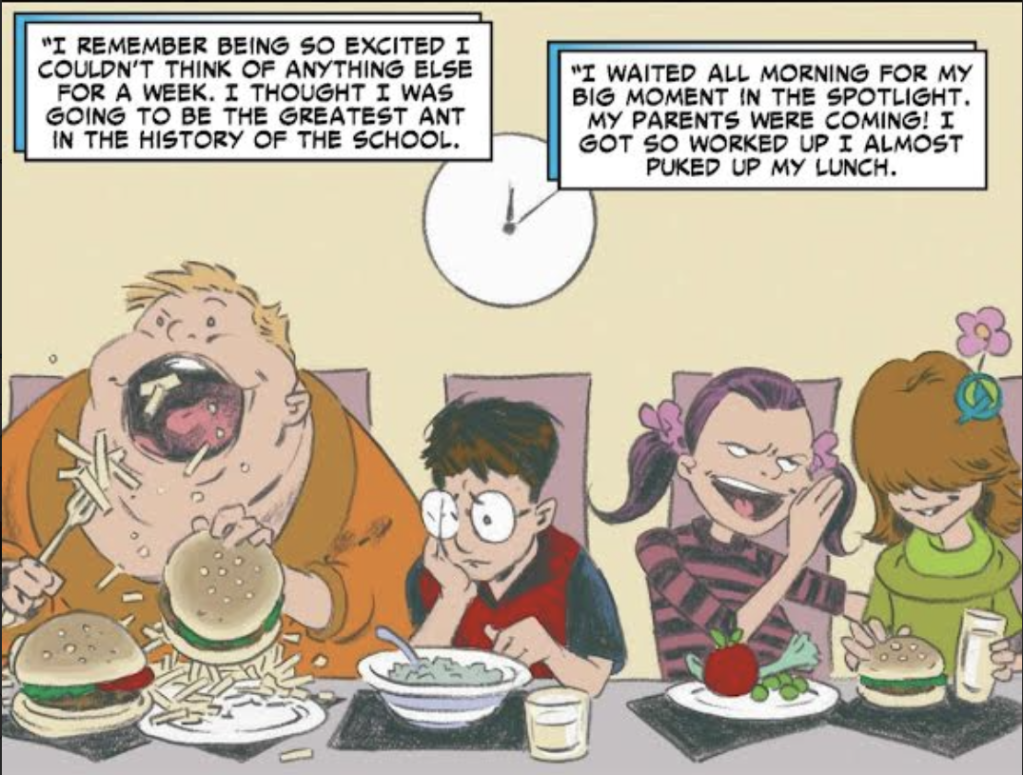
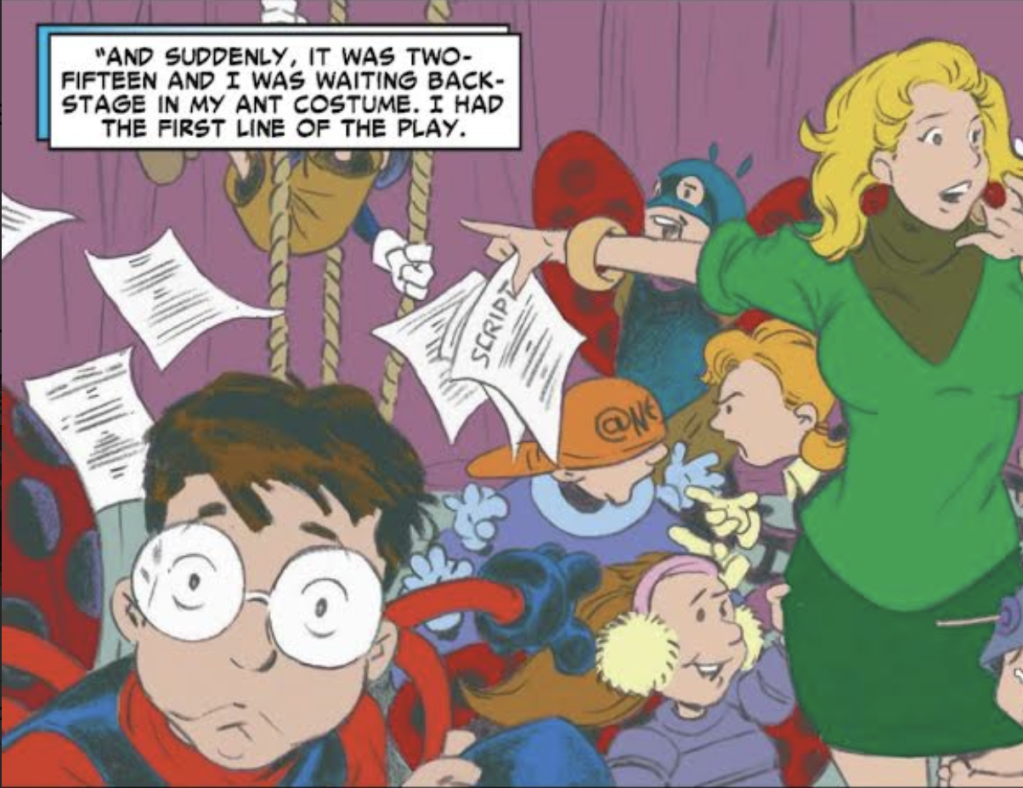
In the same flashback to the school play, we learn that Peter’s parents were already leaving him with Ben and May to travel for work (fun fact: they were S.H.I.E.L.D. agents – something I desperately beg Marvel to retcon) and that their appearance in the flashback was just them visiting the family for Christmas break. In other words, the flashback is one of the only memories Peter has of his parents, something he even admits. Like every kid with absent parents – either in the physical or emotional sense – he wanted to make them proud and to “prove himself” to them by excelling in the play. Thus, Peter failing to deliver his line and nail his performance in the play affected him harder than just your average stage fright, for it made him feel like he let his parents down during one of the only moments they got to spend together. Hence why as Spider-Man, he continues to try to “prove himself” every day – maybe even more than if he had nailed his line in that play in the first place all those years ago.

Essentially, one of the many reasons Spider-Man does what he does is out of a subconscious desire to make his parents proud in case they’re still alive – a very irrational motive, but nonetheless a realistic and understandable one. Like any kid who is too young to understand why parents sometimes have to leave for work reasons, it’s clear that Peter always felt a sense of abandonment and rejection in regards to his parents that only got worse with their deaths. As the voice of Uncle Ben says, he wonders what his parents would have thought of him – of both Peter Parker and Spider-Man – and if they would have been proud of him and of how he turned out.
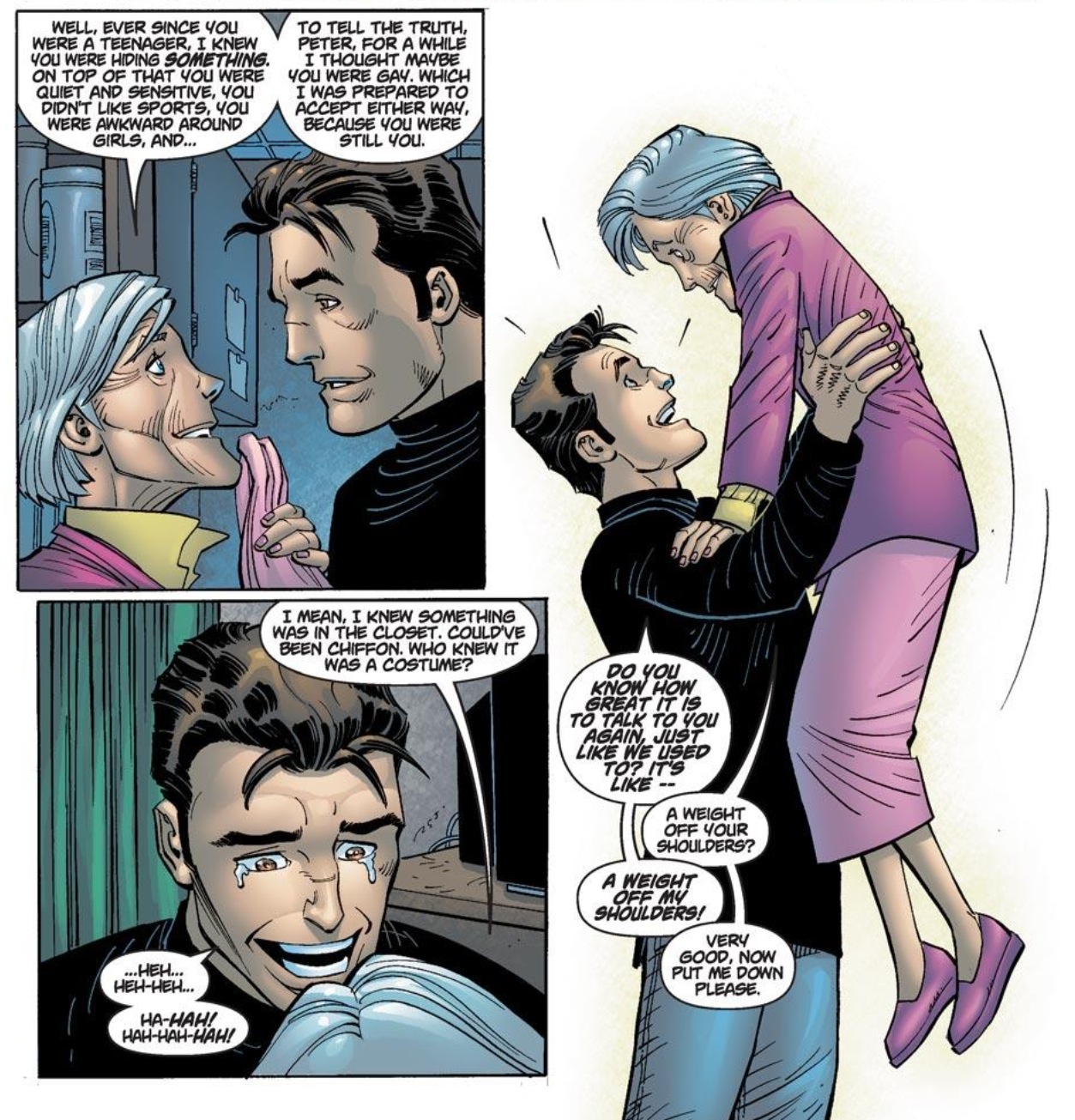
They say the purpose of a satellite book is to support and be complimentary to the main book. By that logic, The Spectacular Spider-Man #27 is a perfect story to go along with JMS’ run on The Amazing Spider-Man. At this point in ASM‘s history, Aunt May has just learned that Peter is Spider-Man. Peter and May had a whole discussion on it in The Conversation (ASM #38), where both came out of it feeling like it brought them closer and like a weight was lifted off their shoulders. The JMS story couldn’t have happened too long before this one, since Peter brings up the event to Uncle Ben in this. It therefore makes perfect sense that Peter would suddenly be more fixated on his birth-parents again now that he has been freed from the burden of hiding a part of himself from the mother that raised him. It makes even more sense when we consider that his birth-parents are also the parental figures he never truly knew. He knows May accepts him and is proud of what he does, and he can reasonably assume that Ben would have felt the same way. What his parents would have thought of him, though, is a total mystery. Unlike with Aunt May, he will never have a conversation with them about it; what their opinion would be will always be a mystery.

Along with a sense of abandonment and rejection, guilt and regret are the other emotions that comes with Peter’s orphan trauma. For instance, in one of the top panels the voice of Uncle Ben says that Peter blames himself because “[He] never had the power to keep them alive.” The line arguably has two meanings:
- One of them is that Peter as a child thought that his parents might have stayed longer had he excelled in the play, and maybe then they would not have died by going back to work so soon. As an adult he knows better, but that emotional subconscious part of him still feels the same way. As cold as that idea might paint Peter’s parents, as we established it makes perfect sense in the mind of a first grader that never got to know or see his parents often.
- Going back to the idea that Peter as a child felt powerless and “like an ant”, Peter wishes that he somehow gotten his spider-powers back in first grade, and believes on an emotional level that that would have been enough to save them.
Obviously these two different beliefs are not incompatible, and both are insanely irrational – but again, also insanely realistic and understandable to any person who has been orphaned who isn’t a robot or Vulcan.
Overall, by getting us deep into Peter’s memories and desires like this, Jenkins here gives us a realistic and three-dimensional view of how orphan trauma can function, and of how a subconscious thought can become conscious through personal introspection. I often hear people say that art and fiction can teach us about human nature just as much as the study of psychology can; this comic is arguably one of the best demonstrations of why that age-old saying is true.
Jenkins is also building on previous orphan trauma that was established by past Spider-Man writers. Contrary to a somewhat common belief when I first got into comics in the 2000’s, Peter’s orphan trauma is not some “new” topic that the comics only started dealing with in Untold Tales or in Ultimate, but actually goes back decades. For instance, the idea that Peter’s guilt complex started with the loss of his parents is something that JMD (Spider-Man’s other brilliant psychoanalyst) explored in his own Spectacular Spider-Man run in the late 80’s and early 90’s.

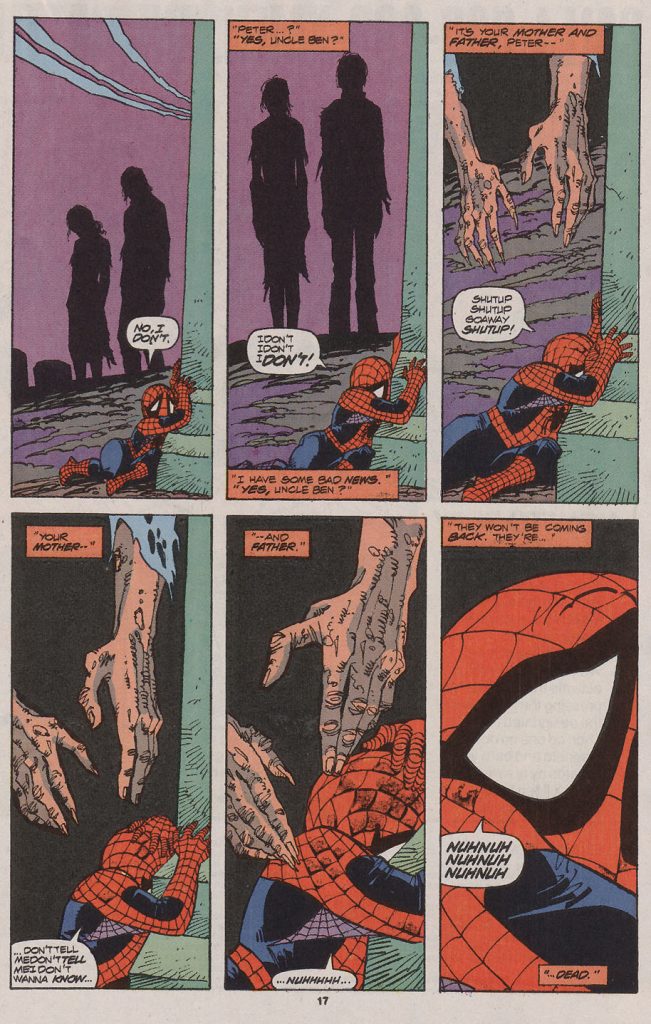
Even going back to the 1960’s, Peter’s orphan trauma and desire to know more about his parents was first explicitly mentioned in the ASM Annual #5. The Annual retroactively established that Peter always had an intense desire to know what happened to his parents, similar to the intense desire we saw from Andrew Garfield’s Peter in The Amazing Spider-Man 1 and 2.


However, I would argue the first reference to orphan trauma we get is in ASM #9 when Ditko was still on the book. In it, Aunt May is hospitalized and Peter is told she may not survive the surgery. Peter then reflects on how May has been a great mother to him throughout all of his “difficult years”. In my mind, there is no other way to interpret the “difficult years” line than as a reference to Aunt May being there anytime Peter missed his mom. Sure, there are many reasons why Peter’s life prior to fifteen can be described as difficult, but arguably the language in this panel is weird if he was referring to anything else – especially the “like a mother” part of the thought bubble. “All these difficult years” also implies that Peter thinks his life – or at least some aspects of his life – weren’t always as difficult as they are by the time we get to ASM#9. If he was instead referring to the fact he’d been bullied his whole life and never had friends, I think he would have instead thought to himself “[Aunt May] has been like a mother to me my whole life.”
Where the movies went wrong

If Peter’s orphan trauma is such a big part of him, how come the Marc Webb films got flack for exploring it? For one, it’s maybe not a good idea to deep dive into the orphan trauma that much when you’re doing an origin film. When you’re retelling the origin, it’s generally best to keep the focus on Uncle Ben and to a lesser extent Aunt May. Once the origin is out of the way and the basic foundation of Peter’s character has been established, focusing more on his parents and orphan trauma in a sequel seems more safe. The risk of you “taking away” from the aunt and uncle who actually raised Peter, or of sending mixed messages to your audience by focusing on all four parent figures at once, is much lower in a sequel than in an origin film.
Of course, good storytellers can deal with both the origin and the orphan trauma at once. There is a lot of overlap there, after all. But good storytellers also have clear visions and don’t lose sight of them. That just wasn’t the case with the TASM films. Just like the omission of Uncle Ben in the MCU, the way those films lacked a clear vision has been explained ad nauseum already by the whole internet, so I won’t go on a tangent about it. I’ll just add that it is because they lacked a clear vision why they ended up sending mixed messages to their audiences, especially with the parents and Uncle Ben. The Final Curtain by comparison is a much shorter story, but has a clear vision that it never loses sight of. It also never loses sight of how important Uncle Ben is to Peter. If it did, we would not see Ben function as Peter’s inner coach the entire time.
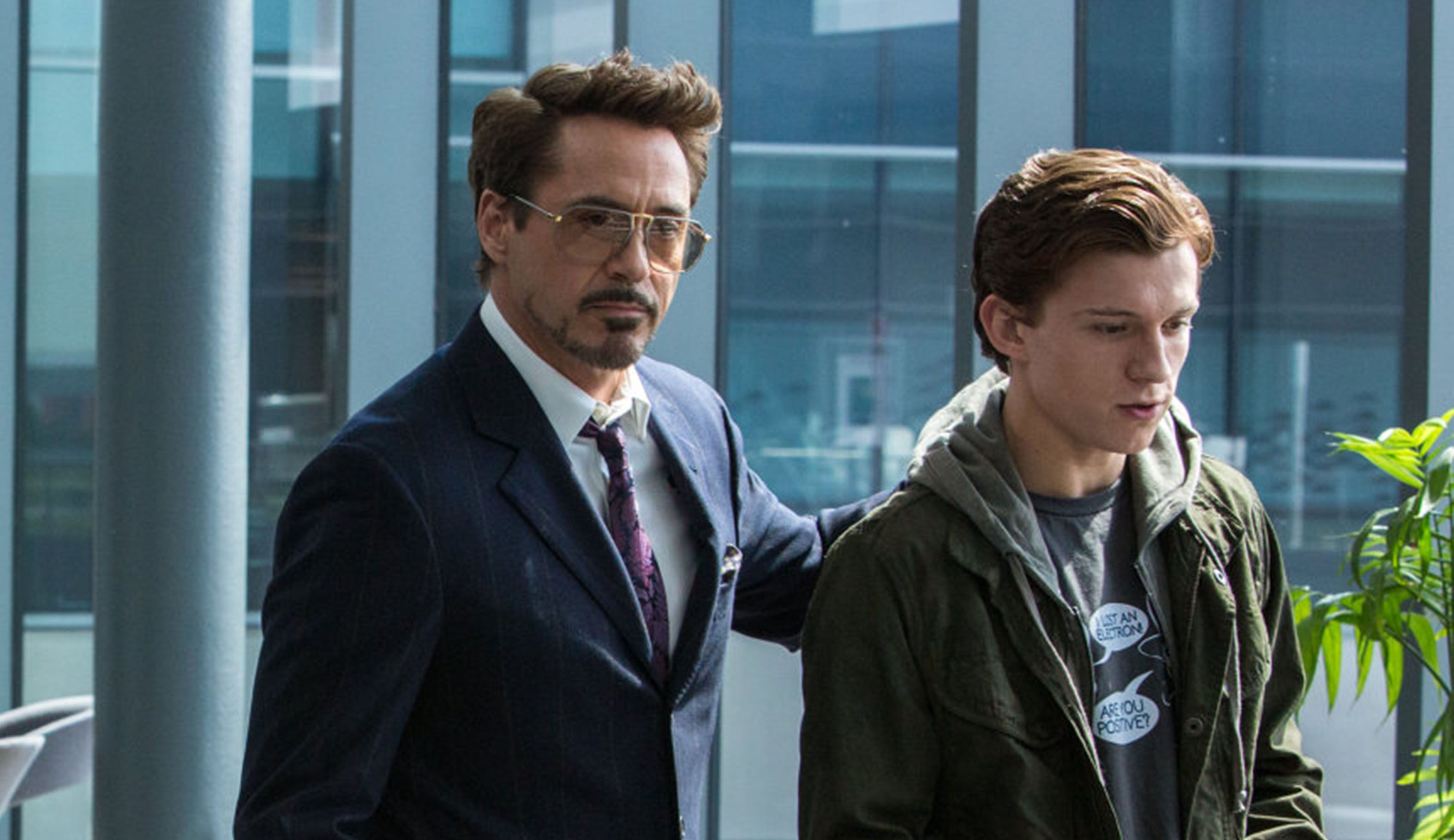
The same is true of MCU Peter’s relationship to Tony. There is nothing that says you can’t tell a story where Peter is trying to impress a different father figure than Uncle Ben. If anything, The Final Curtain argues that Peter’s desire to make another father figure proud predates his desire to make Ben proud. The problem is that just like the Marc Webb films, the MCU too lacked a vision and lost even more sight of Uncle Ben – the former is not as much of an issue since No Way Home, but the latter is worse than ever before.
The Nightmare Around ChrisTMAS
As Peter and Uncle Ben keep talking, Peter goes into more detail about a nightmare that he keeps having.
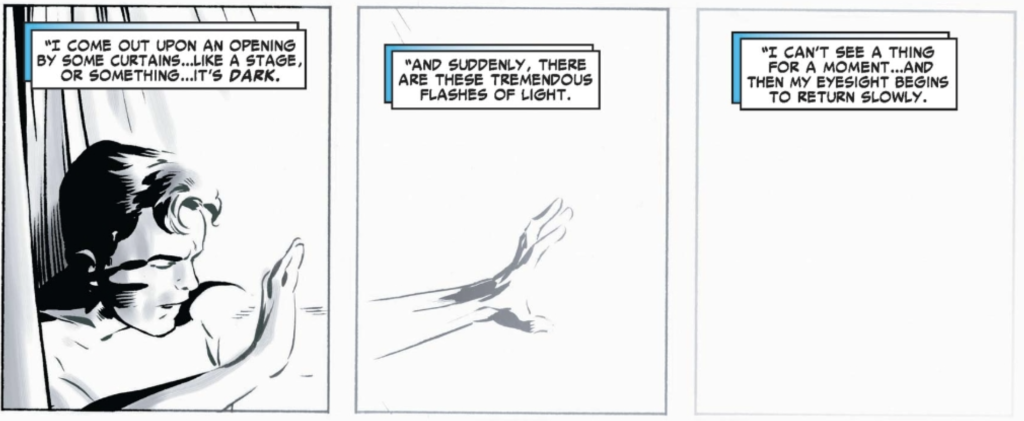
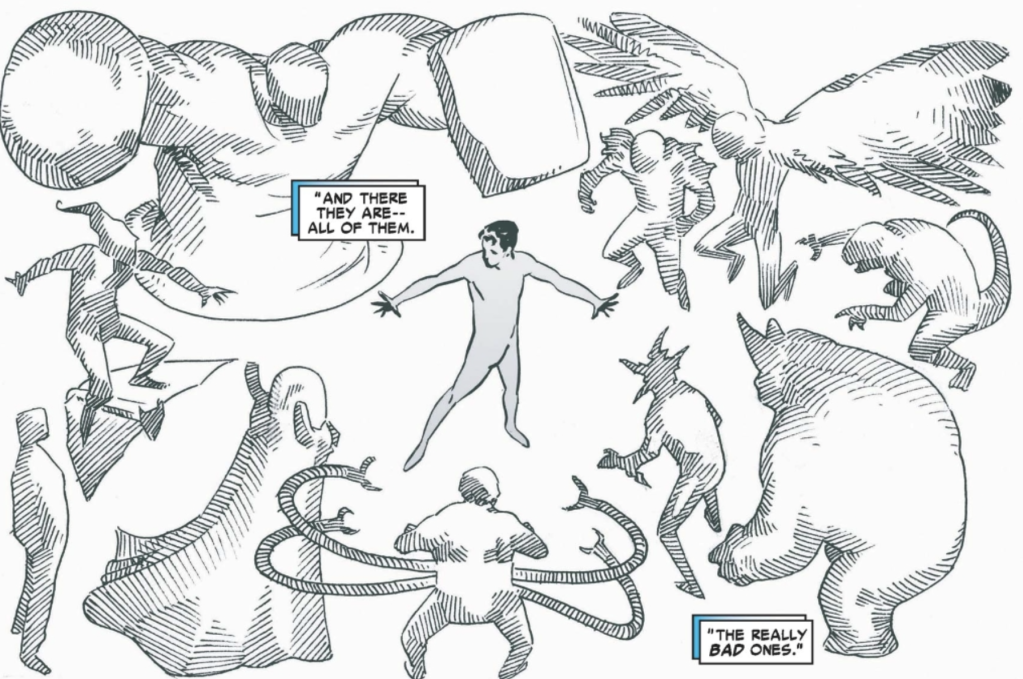
In his nightmare, we can see most of his iconic rogues gallery on a stage attacking him. He is unsure of what the dream means, but figures it out as the story progresses: The villains are representations of his inner critics and demons. We previously mentioned how some consider Jameson a metaphor for Peter’s inner critic, and while we can read Jameson that way, the same can be argued for each of the villains:

- It’s important to note that in Peter’s nightmare, he keeps being attacked on the same stage that he was on as a kid. As we discussed, Peter sees Spider-Man as the face he wants to captivate the world with similar to a performer. The people in the audience are therefore the people of the world. The villains on stage therefore represent Peter’s fears of someday getting killed by one of his villains, letting the world down in the process and not being able to save more people in the future.
- Since Peter is also thinking of Gwen and other supporting characters that he failed to save over the course of Spider-Man history, the villains also serve as a symbol of Peter’s guilt for failing to save the lives of the people they killed.
- Something that commonly gets brought up is how each Spider-Man villain is a dark reflection of himself. Most of the iconic Spider-Man villains we see in Peter’s nightmare – Doc Ock, Rhino, Vulture, Electro and Sandman – were all ordinary people from a working-class background (or lower-middle class, depending on which definition you use) that gained their powers through accidents and then turned to a life of crime. The one exception is the Green Goblin, who is rich but nonetheless mirrors Spider-Man in strength, speed, intellect and personality (both have “trickster” personalities and like to constantly quip). Peter is aware of these parallels between him and his villains, and therefore his villains always felt too close for comfort.
After Peter finally becomes self-aware of what the dream means via his “talk” with Uncle Ben, he goes home and ends up having another dream. This time though, his new dream isn’t a nightmare. In his new dream, Peter is on stage again as his first-grade self, but this time everyone is clapping and cheering. We see that the audience in his dream is the entire Spider-Man supporting cast.
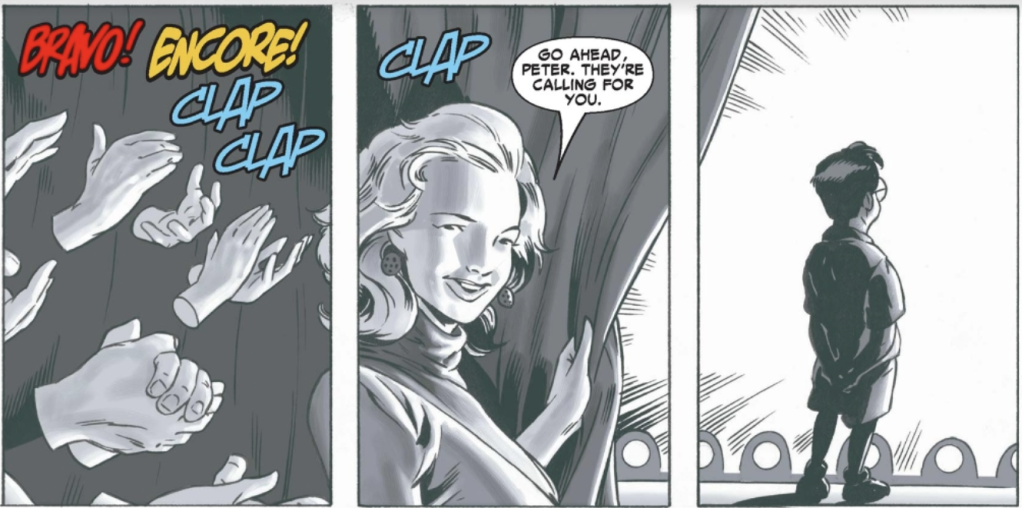

Finally, on the stage itself, we see Peter and his villains holding hands and taking a bow together.

The reason the entire Spider-Man supporting cast is there is to reinforce the idea that Spider-Man is what Peter views as his “best self”; the image of himself that he wants the world to see. To end the story on that note, Jenkins included all the characters that make up Spider-Man’s world.
More interesting, I think, is how Spider-Man is “separate” from Peter at the end while Peter is in his child body looking at him. Just like us, Peter sometimes feels weak and small, as if he is still the same weak person he was in the past. Like all of us, Peter does in those moments what we all try to do: look at the person we imagine to be our “best selves” for guidance. And as we discussed, in Peter’s case he views Spider-Man as the best version of himself. In other words, Peter is looking at Spider-Man there because the idea of Spider-Man is what he is trying to live up to every day. If we think about it, we too try to live to up what we see as our best version of ourselves every day. Also, since the villains are all representations of Peter’s inner critics and fears, the villains bowing with him can be seen as Peter being at peace with himself internally. It is Peter putting his guilt towards his parents’ deaths aside and trying to move on. Again, if we think about it, we too do this kind of “moving on” and of looking forward to new beginnings, especially around this time of year. Hence the term “New Year Resolutions”.
Hence also why the story is called “The Final Curtain”. The other reason for the title is that it was Jenkins’ last issue on Spider-Man after writing the character for five years. When Spider-Man and his supporting cast take a bow in the above panel, it is also Jenkins taking a bow to his audience (us) as he exits the stage and moves on from writing the Spider-Man mythos and its characters.
As Uncle Ben revealed, the reason Peter kept having the same nightmare is because he was being too hard on himself again and blaming himself for all the mistakes he made in the past. All in all, this revelation gets us to the core message of the story.
In spite of how crazy Peter’s life is… with alien symbiotes invading Earth and New Yorkers being thrown off bridges… it ultimately is not that different from our own. We all have friends or partners we lost. We all have guilt. We are all too hard on ourselves, sometimes. We all have intrusive thoughts of embarrassing moments from childhood that harass us inside our minds worse than any Twitter account. We all have subconscious thoughts that we only become conscious of later. We all struggle to put our guilt and our past mistakes behind us, move on, and accept that there are some things we will never know – like what a deceased parent or idol of ours would think of us today. I can go on, and I’m sure you can too.
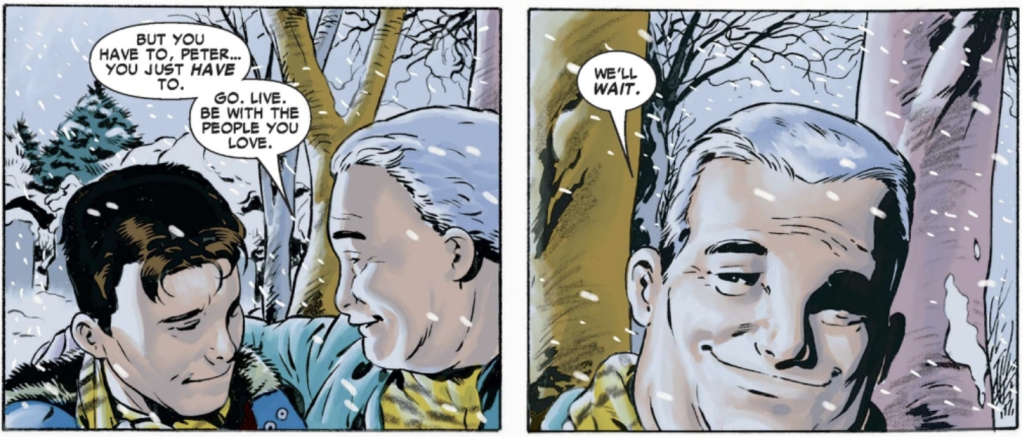
But like Uncle Ben says, or rather as Peter’s inner conscience says, we just have to try and move on. At the end of the day, what other choice is there? No one can turn back time. At the end of the day, trying to figure out a way to forgive ourselves and move forward is our only option.
Maybe some worries and fears are too important to put off from your mind completely, but even then, don’t fret. As Uncle Ben says… “we’ll wait”. In other words, all your worries and fears can wait. If a mistake you made is important to reflect on, you will think about it again. We don’t have to always beat ourselves up over a mistake to “get it”. If it’s guilt or a grieve you have not processed yet, give it time. You will process it with time. It really does heal all wounds.
If nothing else, your fears and regrets can at least wait past Christmas. This Christmas, don’t let your inner critics and demons get to you. Like Peter, go be with the people you love.

Sources
Jenkins, Paul. (2005). The Final Curtain. The Spectacular Spider-Man, (Vol. 2 #27). Marvel Comics.
IN-TEXT REFERENCES
- Sitzmann, S. (2017, March 5). Inner Coach vs. Inner Critic. Enrichment Therapy & Learning Center, P.C. https://enrichmenttherapies.com/inner-coach-vs-inner-critic/#:~:text=Your%20%E2%80%9CInner%20Coach%E2%80%9D%20refers%20to,that%20you%20feel%20is%20difficult.
- Webster, B. (2023). Is your “inner critic” the voice of your mother? Bethany Webster. https://www.bethanywebster.com/blog/inner-critic-voice-of-your-mother/
- Elving, J. (2021, August 21). Genesis of J. Jonah Jameson: Spider-Man’s Guilty Conscience. Elving’s Musings. https://elvingsmusings.wordpress.com/2021/08/21/genesis-of-j-jonah-jameson-spider-mans-guilty-conscience/
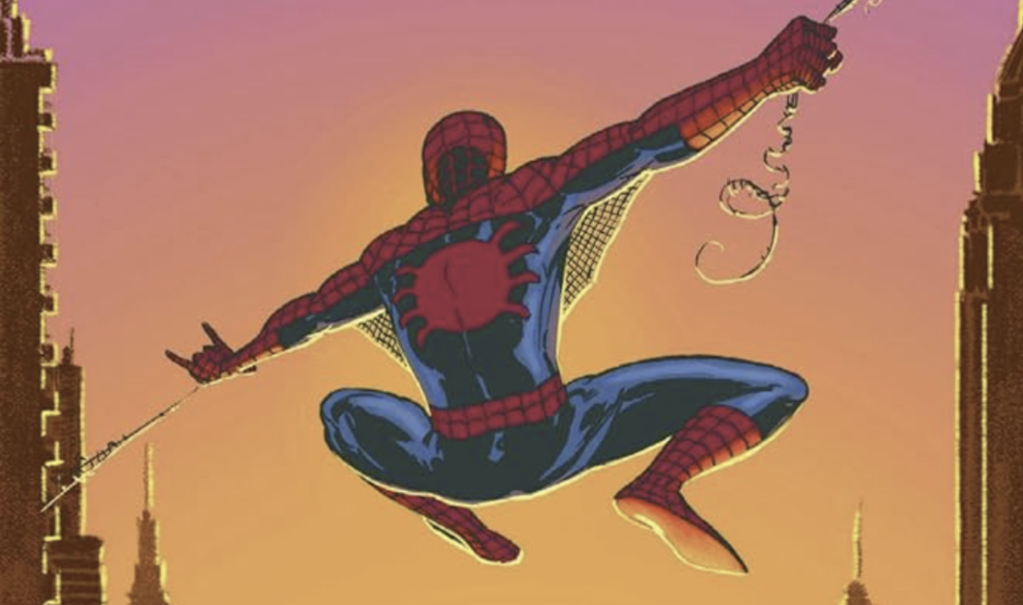
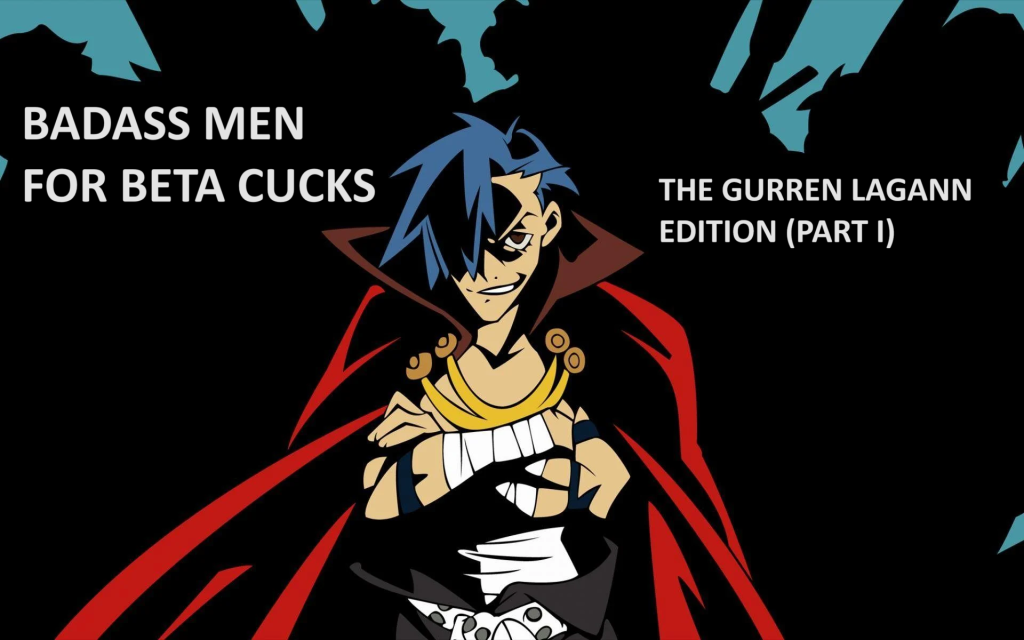
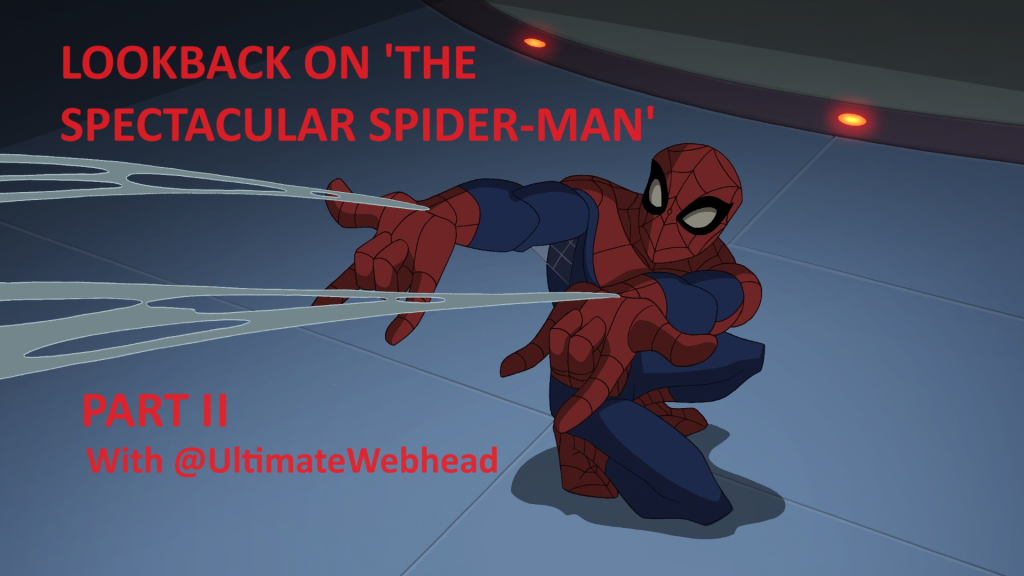
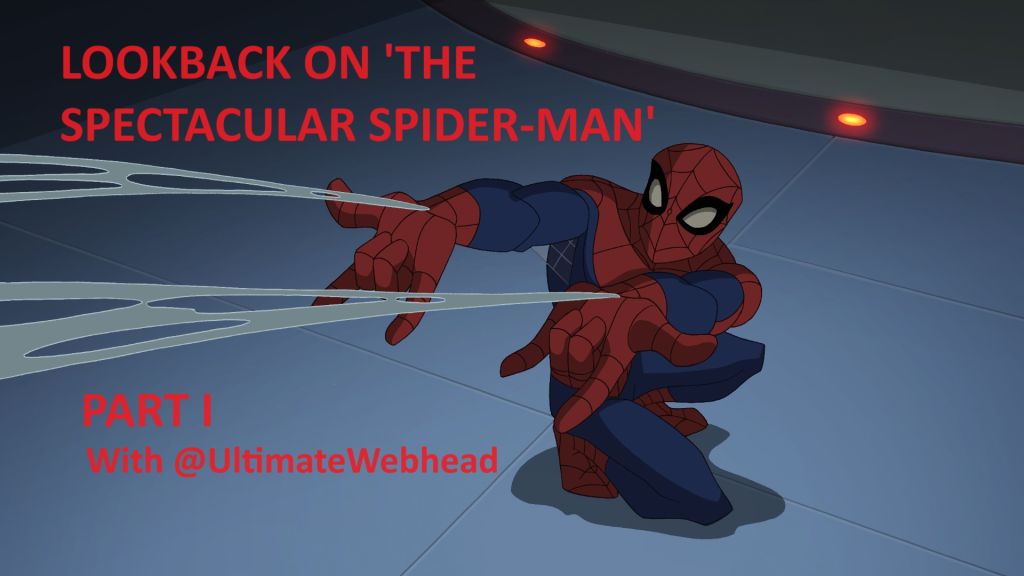
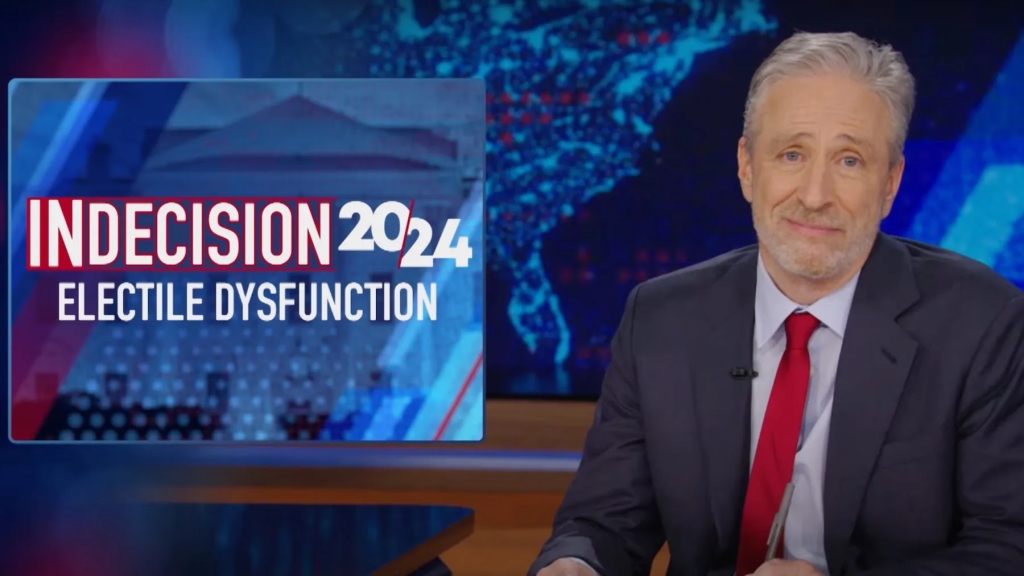

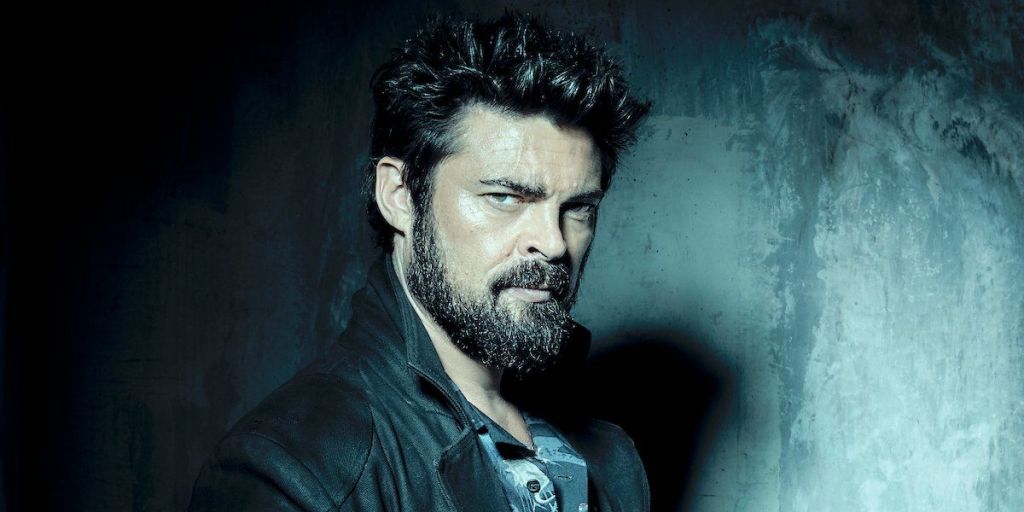
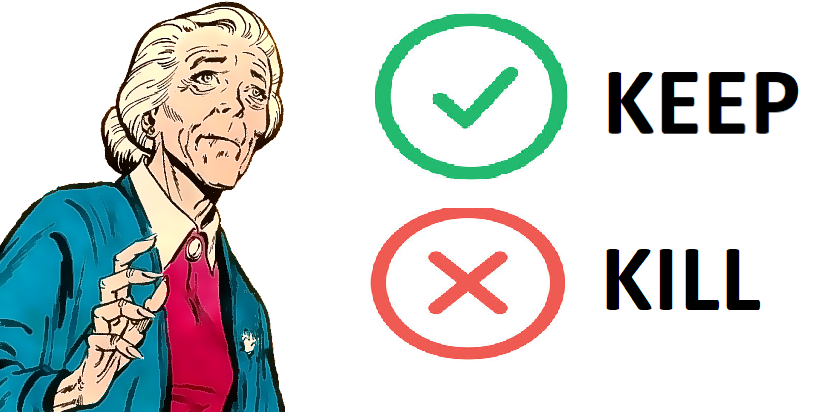
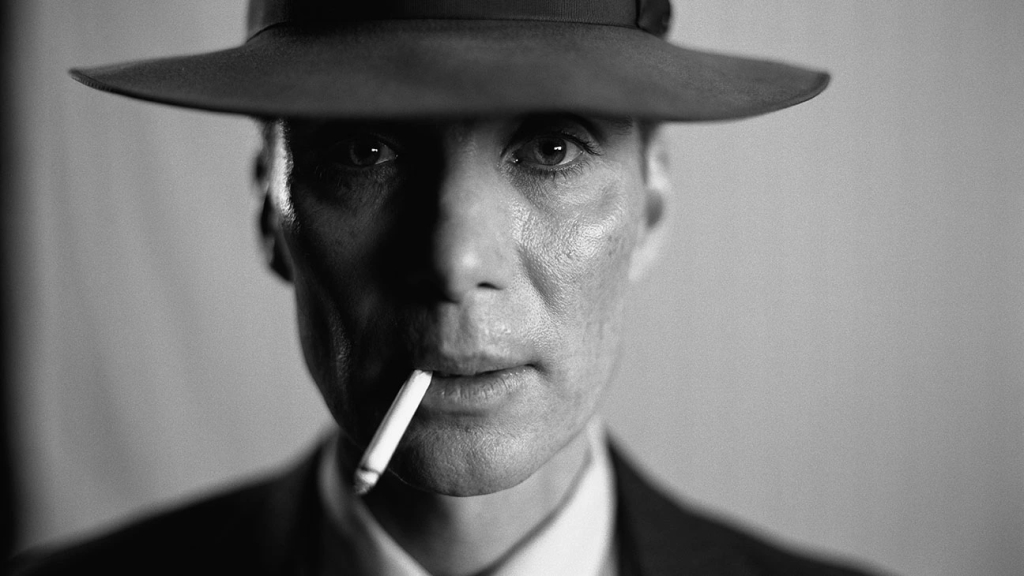
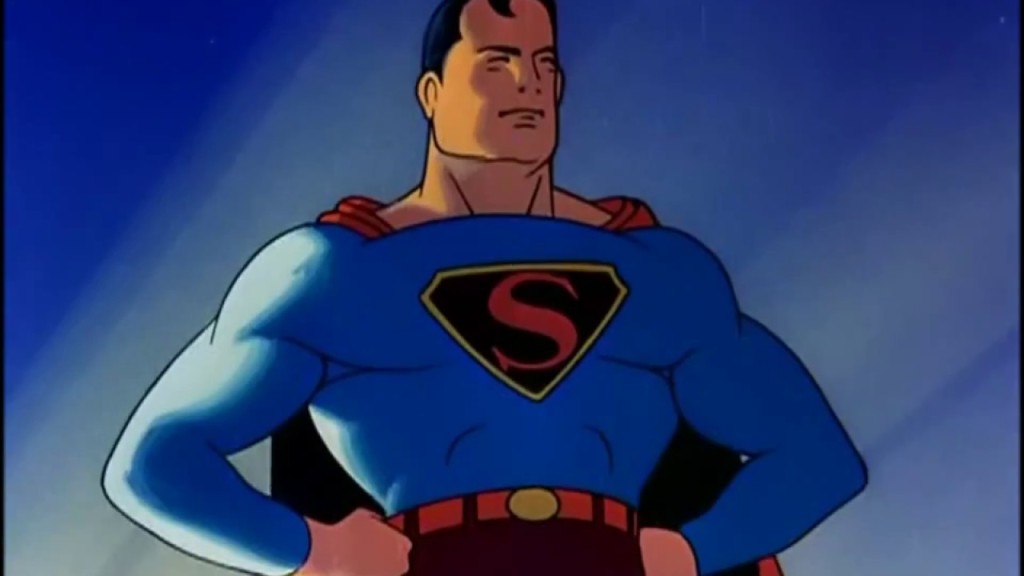
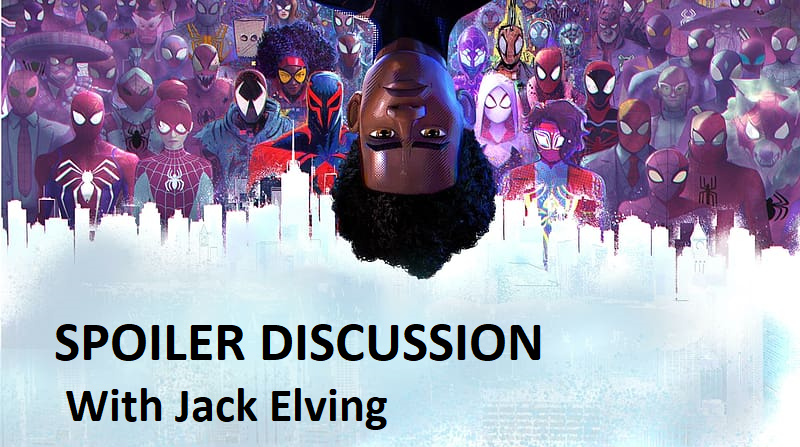
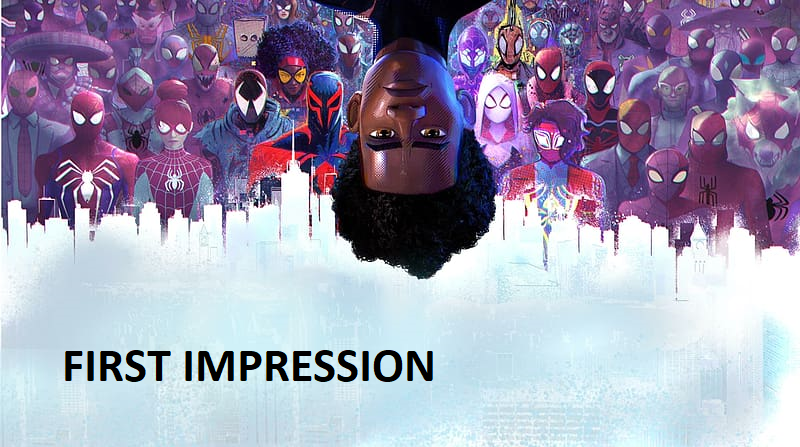
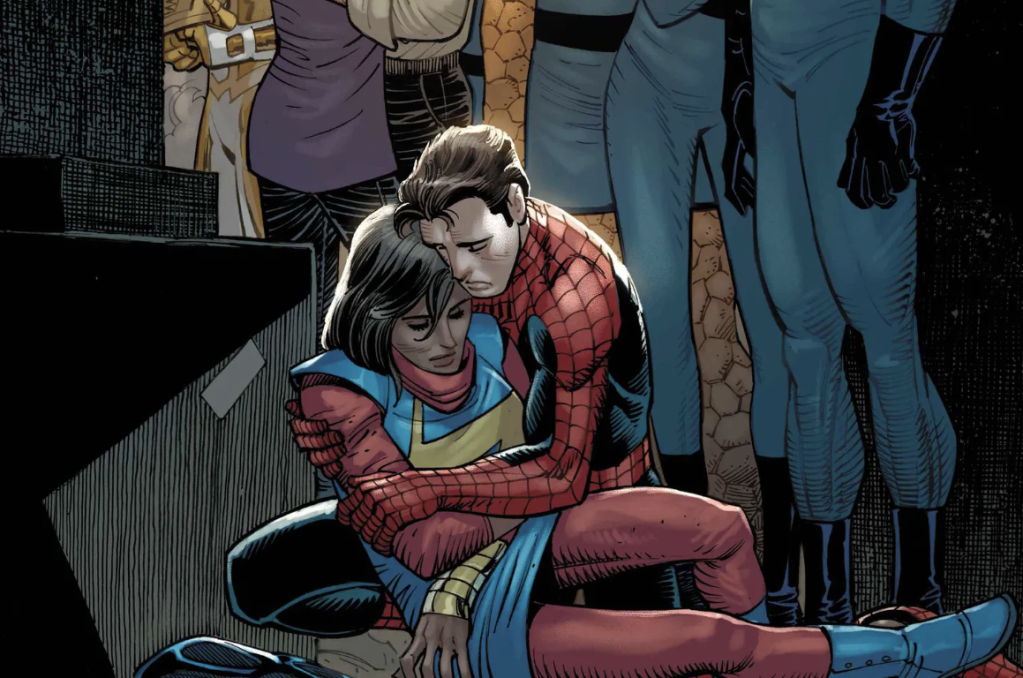

Leave a comment